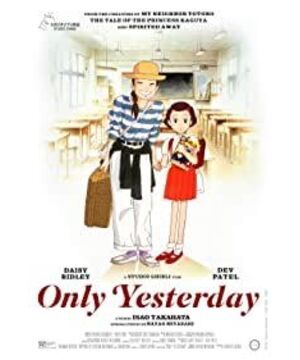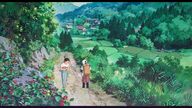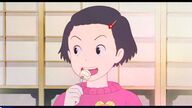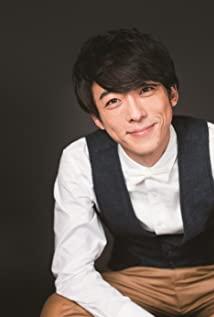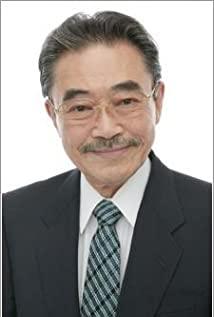This film is a work by Isao Takahata in 1991. It is ranked behind "Grave of the Fireflies" and in front of the other three feature films, but this should be the most outstanding work in which the theme of "time" is played by veteran Gao, because this The story is entirely based on the memories of the protagonist Taeko. And this memory is not as random as the arrangement of "My Neighbor Yamada-kun". As a fairy tale, the movie has a careful arrangement, with obvious character arc changes, and a clear theme revealing Taeko's growth. From Takahata Isao's point of view, Taeko, who is in the stage of breaking out into a butterfly again, is hoping that she will wake up in the fifth grade of elementary school, and the audience also realizes the charm of time in the process.
Why do all the memories of the fifth grade of elementary school suddenly flood into my mind? In the movie, Taeko is also asking herself this question. She said, is she at the time of breaking out into a butterfly again, so she needs the memories of the past to remind herself to seize the opportunity in life. In Taeko's memory, no matter what he does, he seems to be unable to go along with his wishes, and is always in a passive and suppressed state: he doesn't like eating pineapples, but he doesn't say it, just swallows it with his mouth open; his family suspects his IQ because he is not good at mathematics; I am afraid of being laughed at during my period, and I seem to feel inferior about it; I don’t have a home in the countryside to go to during the summer vacation; I like acting but was rejected by my tough father; trace. Although it was all very unpleasant things, Taeko, who is now 27 years old, feels wonderful to recall. No matter whether these memories are good or bad, they are always the experience of his own life, and always the treasures of his own life. Inconspicuous and even annoying treasures, filtered through time, are now dyed with layers of brilliance, which makes Taeko unable to help but think about it. This is probably why Takahata is always fond of depicting the years.
Minxiong reminded Taeko that, in fact, his dirty deskmate didn't shake hands with him because he liked her, which made his inner emotions that he had suppressed for a long time drifted away. That's what led to Taeko's return when she finally turned her back to the audience. She finally began to choose what she wanted, and she finally fully bloomed. The shy, passive, introverted fifth-grade girl who was always suppressing herself looked at Taeko's departure. Go, the past years have finally come to an end, these years have completed his mission and helped Taeko find himself. Just like other works, Takahata is once again fixing the last shot on the face of Taeko when he was a child. He seems to be proving one point all the time, that is, the power of time, what new influences the experienced time can bring to us, and how they Help us on a new journey, or simply, what kind of thoughts does reminiscing about those years get us into that drives us to change?
I often wonder why Takahata Isao's works are so touching? I can outline some of his strengths, such as Gao Lao's exquisite and varied styles of paintings, his nuanced observation of real life, and his excellent interpretation of various real-world subjects. But now I can probably understand where the most attractive part of Gao Lao's works is. The answer is of course as the title of this article says - the power of time. Takahata Isao's five feature films are all about the years and the touches that memories bring to the characters and the audience. For the characters, those past years are an important driving force for them to make key choices; for the audience, through the use of surrealism, flashbacks, etc., we see what the characters were like in the past, and go through the years with the characters. The baptism of the characters, and even looking at the past of the characters from the perspective of a bystander, resulting in some richer associations and thoughts that are detached from the characters themselves but aimed at the characters. This is the magic of montage, and Isao Takahata knows it well.
Takahata's works are often seen and new, maybe I can see more.
View more about Only Yesterday reviews


